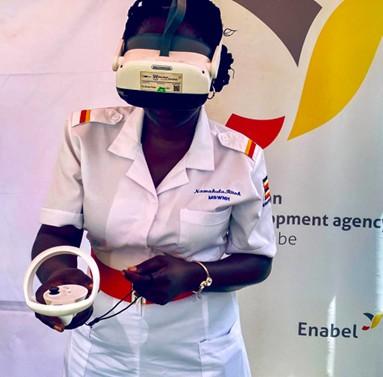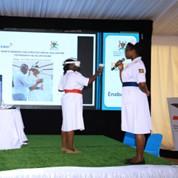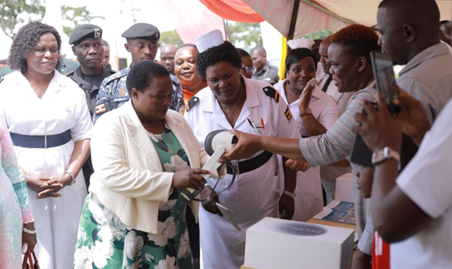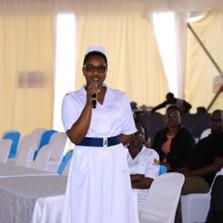Saving Mothers’ Lives: How Virtual Reality is Transforming Midwife Training in Uganda .
Maternal mortality remains a significant public health challenge in Uganda, with postpartum hemorrhage (PPH) standing out as one of the leading causes of preventable maternal deaths according to the 2022/23 Maternal and Perinatal Death Surveillance and Response (MPDS) report.
Despite ongoing efforts to improve maternal health outcomes, many health workers—especially those in rural regions face barriers to accessing up-to-date, practical training on managing life-threatening complications like PPH.
To address this critical gap, Enabel, in partnership with the Ministry of Health, has introduced Virtual Reality (VR) technology to train midwives in the Rwenzori and Busoga regions. Health workers in Enabel-supported health centers are now using VR headsets to learn and practice essential skills for managing PPH, equipping them with hands-on experience that can help save lives.
Even with more mothers giving birth in health facilities and improvements in clinical guidelines, PPH remains a big challenge. This shows the need for new solutions that help midwives not only learn the right procedures but also apply them quickly and effectively during emergencies.
The VR training focuses on the EMOTIVE procedure—Early detection, Massage, Oxytocics, Tranexamic acid, IV fluids, and Examination. This method is based on evidence and helps midwives manage heavy bleeding after childbirth step by step. With VR headsets, they can practice in a realistic, risk-free environment, repeating the procedure as many times as needed.
Through interactive simulations, trainees experience real-life scenarios, make critical decisions, and refine their skills in managing PPH. This hands-on approach not only boosts confidence but also ensures that midwives are better prepared to act swiftly and effectively when faced with real emergencies.
Rita Niwamanya, the National Treasurer of the Uganda National Midwives Association and a member of the national safe motherhood experts committee, noted that the VR device is an excellent tool that improves how midwives think and act in emergencies. It helps to strengthen their decision-making, problem-solving, and hands-on skills needed for medical procedures.
Marion Kainza, a nurse at Bukuku Health Center IV, shares a similar view. She highlighted that practicing with VR technology allows midwives to use their hands in a realistic, safe setting, helping them refine their techniques before working with actual patients, thereby improving the quality of care to mothers and newborns.
“Empowering midwives with practical, hands-on training is essential to reducing maternal mortality,” says Okello Ambrose, Digitalization for Development Officer at Enabel. “VR technology enables us to scale up training efficiently, reaching more health workers across different locations while maintaining high-quality and consistent learning, which is vital for building a resilient health system.”
Enabel and the Ministry of Health remain committed to ending preventable maternal deaths in Uganda. With each simulation, every skill mastered, and each life saved, Uganda moves closer to a future where childbirth is a moment of joy, not loss.
Latest news from this project
No news




